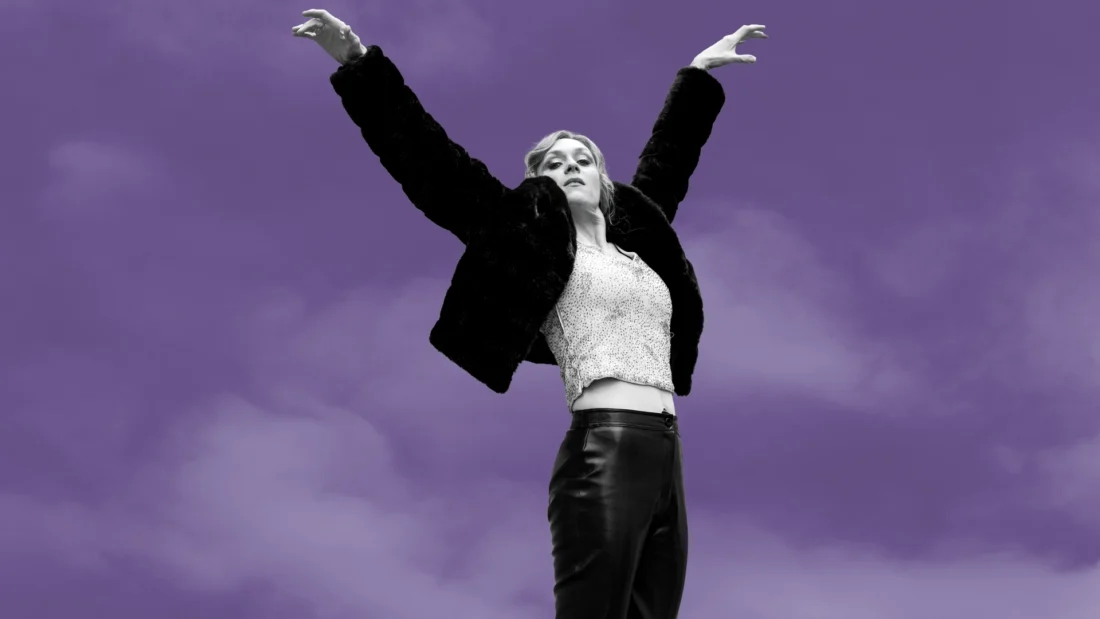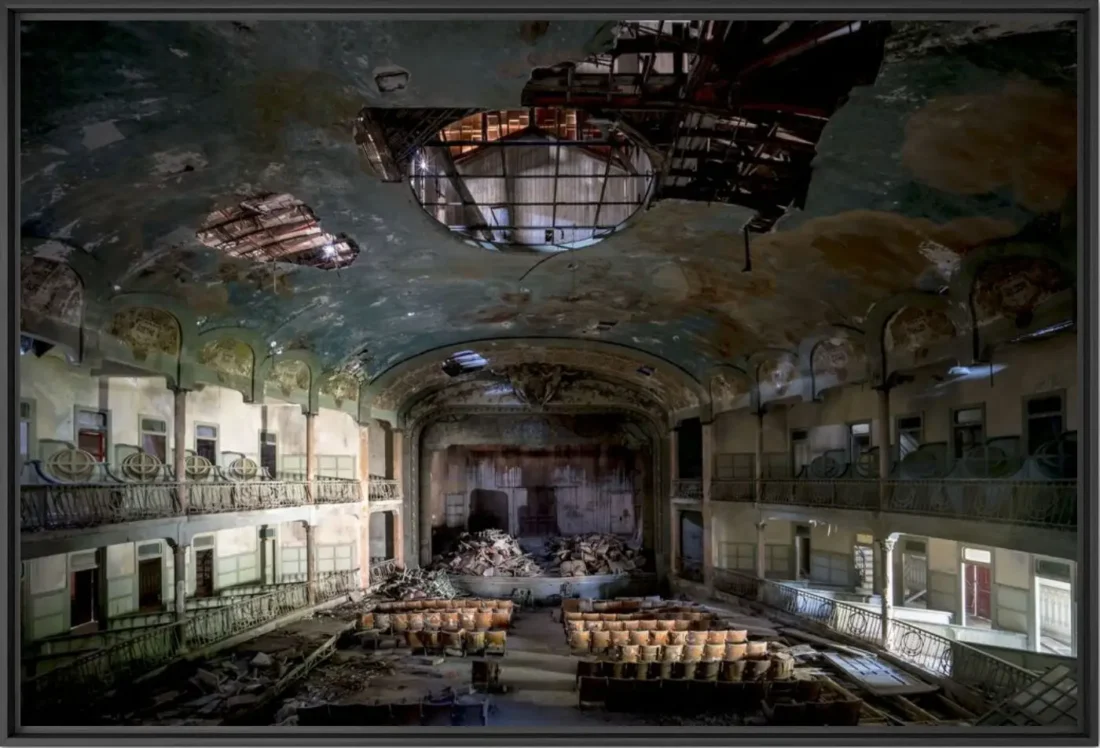
Tangier was like Casablanca in the film: as a free trade zone, it was at times one of the freest places in the world. This is where the legendary Gran Teatro Cervantes stands, where longing coplas, Spanish pop songs, mingle with an echo of Wagner’s Grail music and Moroccan calls and sounds. This is where the German choir singer Eva fled to in 1935, from the brown violence in her homeland and into the arms of a handsome Spaniard called Paco.
How good it does her: his smile, his music, the tender and spirited words! None of which she understands, of course, in a world that seems completely ‘Spanish’ to her. But this light over the city and the sea! And the freedom! How long will Eva live in this paradise? How long can a theatre be a safe space for people of all backgrounds when right-wing populism turns into fascism? Franco’s advance casts its shadow over the amour fou of Eva, Paco and his friend Fede. Paco tries to come to terms with Franco and the new era, while for Eva and Fede this means an absolute firewall. Which weighs more in the end: love or conscience?
In 1980, forty years later, Eva and Paco meet again in the theatre they were forced to leave. Paco asks Eva for a second chance. Why can’t you try life a second time without the mistakes of the past?

The Gran Teatro Cervantes in Tangier made national theatre and opera history in 1913 as a Spanish jewel in the Art Deco style. It was a theatre where artists of all backgrounds, Christians, Muslims and Jews performed, a place where colonialism had to some extent cancelled itself out. In ruins since the 1980s, it is currently being splendidly rebuilt by the Moroccan state. The production team was able to walk through it during the construction work, as the authors interweave its real history with the invented life stories of Paco, Eva, Fede and a Moroccan engineer. They wrote it for the very actresses who are now performing it for the first time.
A story between mentalities and nations, about what builds bridges and about the vulnerability of the place we love and want to protect before winter sets in: the theatre. Even if it is ‘only’ in a former ballroom.
After BÉSAME MUCHO (with Christian Camino and Malte Giesen) and HAYDAR TANZT (with Cecilia Ligori and Alberto Favretto), TANGER AMOR MÍO concludes the trilogy by Albert Tola and Bernhard Glocksin. A trilogy about the beauty, meaning and futility of love.
WITH
Malika Alaoui, Christian Camino, Rodrigo García Olza, Ares Gratal and Franziska Junge
STAGE DIRECTION Cecilia Ligorio MUSICAL DIRECTION Malte Giesen STAGE / COSTUME / VIDEODESIGN Alberto Favretto DRAMATURGY Bernhard Glocksin, Albert Tola DRAMATURGICAL COOPERATION Cecilia Ligori, Rodrigo Olza PRODUCTION MANAGER / ASSISTANT TO THE DIRECTOR Renée Stulz